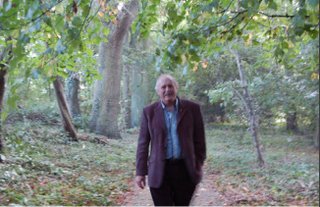John Wilkins has tried, again, to explain the difference between an atheist and an agnostic [
Positivism about agnosticism].
My position is similar to that of Richard Dawkins, and many others. I am an atheist (i.e. not a theist) because there is no convincing evidence for gods, in my opinion. Thus, I do not believe in them (not-a-theist).
There is always a possibility that gods actually exist even though I see no evidence for them. I cannot prove that they are all non-existent. Thus, I am, in a sense agnostic on the possibility of gods existing, although I think the odds are incredibly small.
Like Dawkins, "I am agnostic only to the extent that I am agnostic about fairies at the bottom of the garden." I am a practicing atheist because I do not believe in gods but I am philosophically agnostic as well. I have theist friends who believe in God but are also agnostic.
John says,
Let me be quite clear on this: I do not think there is evidence for a God, as an agnostic. And I certainly think there is evidence against many stories and characterisations of gods. But, and this seems to be the point that strong “skeptics” like Hecht cannot get into their heads, not all. So long as there is a formal possibility that some gods might exist, and no general evidence against it, the rational thing to do is hold off judgement on the (empirically permissible) claims. So Thor doesn’t exist, but Leibniz’s deity might.
Like me, John, doesn't believe in gods—he is not a theist. But he is not an a-theist in spite of the fact that if you followed him around for several days you could not distinguish his bevavior from that of any other non-believer.
We agree that there's a possibility that some sort of gods exist but we both have declined to become believers (theists). Yet, I am a strong atheist/agnostic while John is a nonbeliever but only an agnostic.
Have I got that right, John?
As an amateur philosopher, it seems to me that you could apply the same logic to the existence of fairies or UFO astronauts with a fixation on body openings. There's no evidence that they exist so we don't believe in them. But as long as there's a formal possibility that they exist—and there is—we have to be agnostic about their existence.
For some reason we don't go around announcing to the world that we are agnostic about the existence of fairies, UFOs, and Santa Claus. Why? Doesn't the formal possibility of their existence merit consideration? Don't we recognize that we could never PROVE that fairies don't exist?
The word "agnostic" only ever applies to the belief in gods and never—in common speech—to fairies. We all know the reason for this. It's accommodationism. It's a way to avoid insulting our religious friends by proclaiming you don't believe in their gods. Too bad it's almost always atheists who are so sensitive. You don't see many theists avoiding the word "theist" in favor of "agnostic."
Part of the problem is that agnostics like John tend to use a different definition of "atheist" than we do. He seems to think that it means we deny the possibility that gods exist. I think that's why he considers "atheist" and "agnostic" to be non-overlapping sets.















